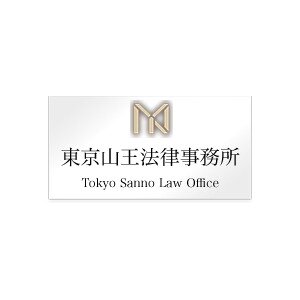Best Business Lawyers in Japan
Share your needs with us, get contacted by law firms.
Free. Takes 2 min.
Or refine your search by selecting a city:
List of the best lawyers in Japan
About Business Law in Japan
Business law in Japan is a vital component of its economic landscape, serving as the framework for commercial activities, corporate governance, and trade practices. As one of the world's largest economies, Japan has a well-developed legal system designed to support its dynamic business environment. The country's business laws encompass a range of areas, including corporate law, contract law, tax regulations, intellectual property, labor standards, and antitrust regulations. These laws are designed to ensure fair competition, protect consumer interests, and promote ethical business practices across various sectors of the Japanese economy.
Why You May Need a Lawyer
Several situations may necessitate legal assistance in the field of business in Japan:
- **Starting a Business**: Whether forming a corporation or starting a sole proprietorship, understanding the legal requirements is crucial.
- **Contractual Agreements**: Drafting, reviewing, and negotiating contracts often require expert legal guidance to ensure compliance and safeguard interests.
- **Intellectual Property Protection**: Protecting your brand, patents, and trademarks is essential to maintaining competitive edge.
- **Employment Issues**: Navigating complex employment laws related to hiring, firing, and workplace conditions can be challenging.
- **Dispute Resolution**: Legal expertise is often required to resolve conflicts through litigation, arbitration, or mediation.
- **Compliance**: Ensuring your business activities comply with local regulations, including finance, tax, and environmental laws, is critical to avoid penalties.
Local Laws Overview
Key aspects of local business laws in Japan include:
- **Corporate Law**: The Companies Act governs corporate formation, operation, and dissolution.
- **Contract Law**: Governed primarily by the Civil Code, it outlines the principles of contract formation, validity, and enforceability.
- **Intellectual Property Law**: Comprising patents, trademarks, and copyright protections under various statutes, including the Patent Act and Trademark Act.
- **Labor Laws**: Include laws such as the Labor Standards Act which dictates working conditions, wages, and rights of employees.
- **Taxation**: Overseen by the National Tax Agency, covering corporate tax, consumption tax, income tax, and more.
- **Competition and Antitrust Laws**: These are governed by documents such as the Antimonopoly Act to prevent anti-competitive practices.
Frequently Asked Questions
1. What types of business structures are available in Japan?
The main business structures in Japan are the corporation (Kabushiki Kaisha), limited liability company (Godo Kaisha), partnership, branch office, and representative office.
2. How do I register a company in Japan?
To register a company, you must prepare statutory documents, register with the Legal Affairs Bureau, obtain a seal, open a bank account, and complete tax registration.
3. Are there specific laws for foreign companies operating in Japan?
Yes, foreign companies must adhere to local business regulations, including the Foreign Exchange and Foreign Trade Act, and ensure proper registration and permits.
4. What are the labor regulations I must be aware of when hiring employees?
Key regulations include work hours, leave entitlements, minimum wage requirements, and employer contributions to social insurance.
5. How are disputes typically resolved in Japan?
Disputes can be resolved through litigation in courts, arbitration, or mediation. Japan emphasizes alternative dispute resolution to minimize litigation costs.
6. Can I protect my intellectual property in Japan, and how?
Yes, you can protect your intellectual property by registering patents, trademarks, and copyrights with the Japan Patent Office.
7. What are my obligations concerning consumer protection laws?
Businesses must comply with laws that protect consumer rights, including clear labeling, honest advertising, and consumer contract regulations.
8. How does Japan's taxation system impact my business?
Businesses are subject to corporate tax, consumption tax, withholding tax, and local taxes. Understanding deductions and credits available is important for financial efficiency.
9. What are the penalties for non-compliance with business regulations?
Penalties can include fines, restrictions on business operations, and in severe cases, criminal charges depending on the nature of non-compliance.
10. Is English widely used in legal contracts in Japan?
Japanese is the dominant language for legal contracts. However, English contracts can be used with accurate Japanese translations often required for official purposes.
Additional Resources
- **Japan External Trade Organization (JETRO)**: Assists with market entry for foreign businesses.
- **Ministry of Economy, Trade and Industry (METI)**: Provides guidance and regulation for industrial and economic activities.
- **Japan Patent Office (JPO)**: For registration and protection of intellectual property.
- **Japan Chamber of Commerce and Industry (JCCI)**: Offers support and resources for business activities.
Next Steps
If you need legal assistance in business matters in Japan, consider the following steps:
- **Consult a Lawyer**: Reach out to a lawyer specializing in Japanese business law for personalized advice and strategy.
- **Gather Documentation**: Prepare all relevant documents that relate to your business issue for a comprehensive legal consultation.
- **Research and Reach Out**: Utilize available resources, such as government websites and business support organizations, to gather initial information about your situation.
- **Schedule a Consultation**: Set up an initial meeting with a law firm to discuss your requirements, expected outcomes, and legal fees involved.
Lawzana helps you find the best lawyers and law firms in Japan through a curated and pre-screened list of qualified legal professionals. Our platform offers rankings and detailed profiles of attorneys and law firms, allowing you to compare based on practice areas, including Business, experience, and client feedback.
Each profile includes a description of the firm's areas of practice, client reviews, team members and partners, year of establishment, spoken languages, office locations, contact information, social media presence, and any published articles or resources. Most firms on our platform speak English and are experienced in both local and international legal matters.
Get a quote from top-rated law firms in Japan — quickly, securely, and without unnecessary hassle.
Disclaimer:
The information provided on this page is for general informational purposes only and does not constitute legal advice. While we strive to ensure the accuracy and relevance of the content, legal information may change over time, and interpretations of the law can vary. You should always consult with a qualified legal professional for advice specific to your situation.
We disclaim all liability for actions taken or not taken based on the content of this page. If you believe any information is incorrect or outdated, please contact us, and we will review and update it where appropriate.
Browse business law firms by service in Japan
Japan Attorneys in related practice areas.
Browse business law firms by city in Japan
Refine your search by selecting a city.















